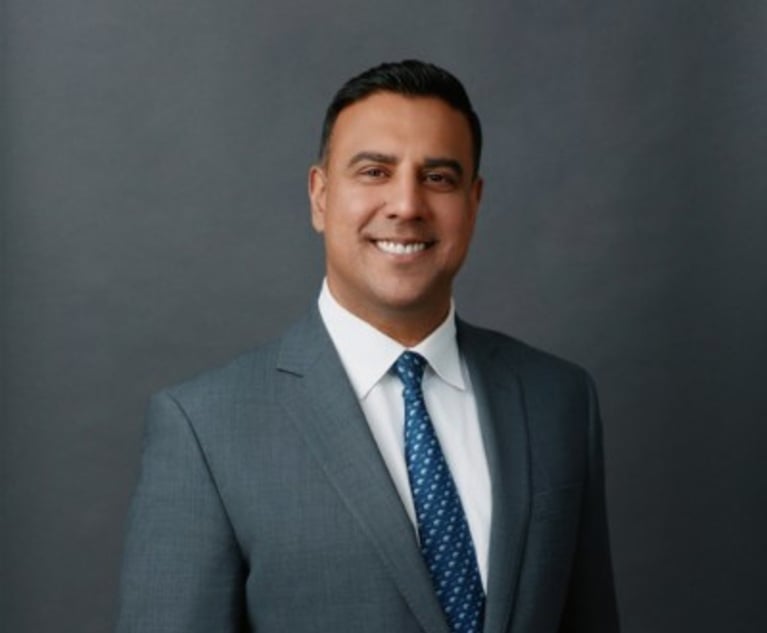Stressed in the City - law firms must do more to tackle the damaging 24/7 working culture
With lawyers feeling under more pressure than ever, creating an environment where staff feel able to admit they are not coping is vital
April 23, 2015 at 05:02 AM
3 minute read
Eighty-two percent of senior lawyers believe their health is being damaged by the long hours they work. Half of these believe the problem is 'serious'.
Long hours are – and always have been – part and parcel of working in the City. The fact that the legal profession is a service industry compounds the problem. As does the increasingly blurred line between work and home life that smartphones and tablets are fostering. After all, if technology has effectively created a world where lawyers are always available and clients know they are always able to reach them, why shouldn't they try to do so?
But, as our lead feature this week highlights, the result of this 24/7 working culture is that lawyers are feeling the pressure now more than ever. And as the experts quoted explain, the potential effects on home and family life, in addition to health, are bad.
It is easy to find a handful of high-profile examples of associates or partners at leading firms who've suffered as a result of stress. Less visible are the numerous others – at all levels of experience – holding things together on the surface while underneath struggling to deal with billable hours targets and client expectations.
In their defence, law firms have woken up to the problem and have everything from resilience training to nutrition and exercise advice through to counselling services on hand for those in need. But there remains a challenge in promoting these services to staff and creating an environment where people feel able to use them and admit that they are finding it hard to cope.
Our recent survey found 57% of respondents believe their firms are not taking active steps to help lawyers deal with stress and long hours. Despite apparent growing awareness of the issue, this figure is marginally worse than a similar Legal Week survey two years ago, when almost half of respondents thought their firms were taking the matter seriously. Clearly more needs to be done. Assuming clients do not ease up their demands and that technology only perpetuates the 'always on' culture, firms need to take more action to protect staff.
The support on offer and efforts to help improve work/life balance by firms to date are no bad thing, but more important is monitoring working practices, training managers to recognise the signs of those under pressure and creating a less macho culture where admitting that you are finding things difficult is not seen as weakness. Perhaps another area where more women in law could only be a good thing.
This content has been archived. It is available through our partners, LexisNexis® and Bloomberg Law.
To view this content, please continue to their sites.
Not a Lexis Subscriber?
Subscribe Now
Not a Bloomberg Law Subscriber?
Subscribe Now
NOT FOR REPRINT
© 2025 ALM Global, LLC, All Rights Reserved. Request academic re-use from www.copyright.com. All other uses, submit a request to [email protected]. For more information visit Asset & Logo Licensing.
You Might Like
View All
Rosenblatt Breaks Away From RBG, Becomes 40-Strong Standalone Firm

Eversheds Sutherland Outgoing Co-CEO to Move to Dubai to Spur Regional Growth
2 minute read
More than Half of South Australian Lawyers Report Suffering Harassment
3 minute readTrending Stories
- 1Uber Files RICO Suit Against Plaintiff-Side Firms Alleging Fraudulent Injury Claims
- 2The Law Firm Disrupted: Scrutinizing the Elephant More Than the Mouse
- 3Inherent Diminished Value Damages Unavailable to 3rd-Party Claimants, Court Says
- 4Pa. Defense Firm Sued by Client Over Ex-Eagles Player's $43.5M Med Mal Win
- 5Losses Mount at Morris Manning, but Departing Ex-Chair Stays Bullish About His Old Firm's Future
Who Got The Work
J. Brugh Lower of Gibbons has entered an appearance for industrial equipment supplier Devco Corporation in a pending trademark infringement lawsuit. The suit, accusing the defendant of selling knock-off Graco products, was filed Dec. 18 in New Jersey District Court by Rivkin Radler on behalf of Graco Inc. and Graco Minnesota. The case, assigned to U.S. District Judge Zahid N. Quraishi, is 3:24-cv-11294, Graco Inc. et al v. Devco Corporation.
Who Got The Work
Rebecca Maller-Stein and Kent A. Yalowitz of Arnold & Porter Kaye Scholer have entered their appearances for Hanaco Venture Capital and its executives, Lior Prosor and David Frankel, in a pending securities lawsuit. The action, filed on Dec. 24 in New York Southern District Court by Zell, Aron & Co. on behalf of Goldeneye Advisors, accuses the defendants of negligently and fraudulently managing the plaintiff's $1 million investment. The case, assigned to U.S. District Judge Vernon S. Broderick, is 1:24-cv-09918, Goldeneye Advisors, LLC v. Hanaco Venture Capital, Ltd. et al.
Who Got The Work
Attorneys from A&O Shearman has stepped in as defense counsel for Toronto-Dominion Bank and other defendants in a pending securities class action. The suit, filed Dec. 11 in New York Southern District Court by Bleichmar Fonti & Auld, accuses the defendants of concealing the bank's 'pervasive' deficiencies in regards to its compliance with the Bank Secrecy Act and the quality of its anti-money laundering controls. The case, assigned to U.S. District Judge Arun Subramanian, is 1:24-cv-09445, Gonzalez v. The Toronto-Dominion Bank et al.
Who Got The Work
Crown Castle International, a Pennsylvania company providing shared communications infrastructure, has turned to Luke D. Wolf of Gordon Rees Scully Mansukhani to fend off a pending breach-of-contract lawsuit. The court action, filed Nov. 25 in Michigan Eastern District Court by Hooper Hathaway PC on behalf of The Town Residences LLC, accuses Crown Castle of failing to transfer approximately $30,000 in utility payments from T-Mobile in breach of a roof-top lease and assignment agreement. The case, assigned to U.S. District Judge Susan K. Declercq, is 2:24-cv-13131, The Town Residences LLC v. T-Mobile US, Inc. et al.
Who Got The Work
Wilfred P. Coronato and Daniel M. Schwartz of McCarter & English have stepped in as defense counsel to Electrolux Home Products Inc. in a pending product liability lawsuit. The court action, filed Nov. 26 in New York Eastern District Court by Poulos Lopiccolo PC and Nagel Rice LLP on behalf of David Stern, alleges that the defendant's refrigerators’ drawers and shelving repeatedly break and fall apart within months after purchase. The case, assigned to U.S. District Judge Joan M. Azrack, is 2:24-cv-08204, Stern v. Electrolux Home Products, Inc.
Featured Firms
Law Offices of Gary Martin Hays & Associates, P.C.
(470) 294-1674
Law Offices of Mark E. Salomone
(857) 444-6468
Smith & Hassler
(713) 739-1250









